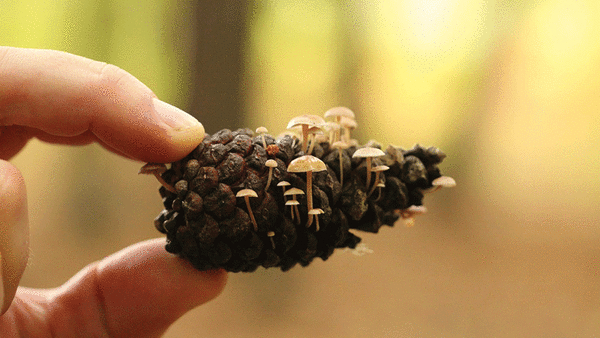

Fungi could be an “untapped potential” of carbon storage, with more than 13 gigatons of CO2e passing through an underground network of mycelium every year, a new study suggests.
Equivalent to 36 per cent of annual CO2 emissions from fossil fuels, the carbon is stored at least temporarily in the fungi, though the researchers said more work is needed to understand how much is retained long-term.
Scientists already knew of mycorrhizal fungi’s storage ability because they form symbiotic relationships with almost all land plants and transport carbon, converted into sugars and fats by the plant,into soil.
Now an international team, publishing in the journal Current Biology,has revealed the possible scale of fungi’s carbon-capture powers by conducting a meta-analysis of hundreds of other studies of plant-soil processes.
They estimate that 13.12 gigatons of CO2e is passing through fungal networks every year, in addition to that sequestered by trees through photosynthesis.
Professor Katie Field, of the University of Sheffield and co-author of the study, said: “We don’t have any off-the-shelf solutions just yet but I think what our numbers show is that there is untapped potential there.
“They’re unlike any other organisms on Earth and they’ve been overlooked for almost the entirety of biological study.
“We’ve only just scratched the surface in how important they might be in terms of environmental function.
“Even the species - there’s an estimated between and six and seven million species of fungi but we’ve only ever described between12-15,000. So there’s so much we don’t know.”
Mycorrhizal fungi have existed for about 500 million years and makeup vast underground networks in every landscape on every continent on earth, even under roads in urban environments.
Prof Field hopes the work will lead to changes in environmental policy and towards managing land in a “fungi-friendly fashion.”
This would include encouraging farming practices that use fewer pesticides while preventing soil degradation. It would not only allow fungal networks to grow in their own natural way but would also improve the fertility of the soil through boosting organic matter, she said.— PA Media/dpa
Oman Observer is now on the WhatsApp channel. Click here


